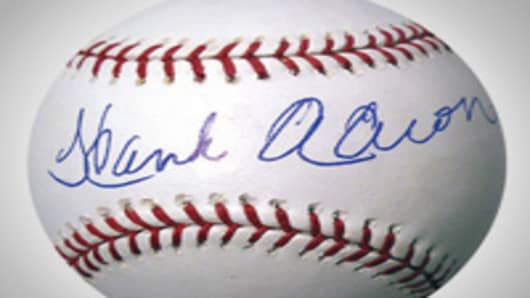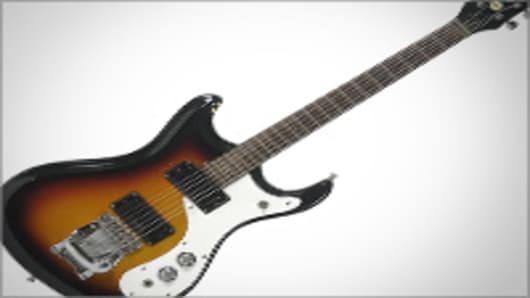Some love Mickey—Mouse that is. Others worship Mickey—as in Mantle. But to make a profit off of your passion, you have to know what you’re doing.
Irwin Kishner, head of the Sports and Entertainment practice at Herrick, Feinstein LLP in New York, says, “there are two types of memorabilia purchasers.”
The first is someone who collects for nostalgia reasons—like baseballs signed by childhood heroes; the second is an investor or wealthy individual who has a more substantial collection.
The memorabilia market is vast in what is considered collectible, the venues for buying and selling, and the total dollar value. The largest markets are sports and entertainment, and the most popular trading is
done through auction houses, specialty dealers, andinternet outlets like eBay . Because memorabilia is not traded on an organized, formal exchange, it's hard to pin down the exact size of the business but it is certainly a multi-billion-dollar one.
If you’re considering bumping your collection up a notch, or adding memorabilia to your investment portfolio, here are eight rules to keep in mind:
1. Don’t fall in love with your investments.
Brandon Steiner, Founder and CEO of Steiner Sports Marketing, says memorabilia is often a feel good purchase. “You can’t have any emotional connection with this stuff,” Steiner says. To a collector, Steiner says, “Buy from your heart. Buy something you love and assume that it is not going to go up in value.” To an investor, his advice: “Don’t do what I just said.”
2. Go with the tried and true.
The big names in sports, entertainment or historical memorabilia—Babe Ruth, George Washington and Frank Sinatra—will increase in value over time.
3. The law of supply and demand is in effect.
If there is a limited number of a particular item, it will be worth more. For example, there will never be a new photograph taken of Abraham Lincoln.
Steiner says he made an investment in Hank Aaron for a couple of reasons: his legacy as a great homerun hitter would not change and he was getting older. Therefore, demand would remain, but supply would decrease over time.
4. To get top dollar on an item, it has to be “pristine” or museum quality.
Allan Cutrow, a Partner at Mitchell Silberberg & Knupp LLP in Los Angeles who specializes in estate planning for collectors, says “the average good collection is only 10 to 20 percent museum quality. The other 80 percent are a bunch of items that can be difficult to put in place or sell.”
- Watch CNBC.com Special on Pop Memorabilia
Kishner estimated the worth of his own baseball card collection to be in the tens of thousands of dollars. “But I got an off the cuff reaction of a thousand or two,” he says. “Pristine is truly pristine. To the naked eye I thought these were pretty good.”
5. The market is fragmented.
Activity is not limited to big auction houses like Sotheby’s and Christie’s. Though big-ticket items often come through those firms, there are also specialty dealers and auction houses. You can also buy and sell on eBay.
6. No matter whom you deal with, make sure they are reputable.
Kishner says, “it’s easy to have frauds, particularly when you have signatures involved which are easily replicable.” He says, “it’s worth it to deal with an expert.” They do the research for you and they know what they are looking for.
7. Prices fluctuate.
The value of memorabilia moves up and down with prices in general. And, with the economy in recession, prices have fallen. But Steiner and Kishner agree that there are other factors that also affect the price of a given item. For example, if a player wins a championship, a signed photo will go up in value. It is also estimated that Michael Jackson memorabilia went up about 40 percent in value in the days following his death.
8. There's no accepting for taste.
Don’t buy stuff thinking that you are going to leave it for your kids, Steiner says. Chances are they are not going to feel the same, and when you die they are going to sell it. If you do plan to pass your collection on, make sure the recipient wants the stuff or knows what to do with it. Cutrow says that your estate plan should include specific instructions for your designated estate representative regarding what to do with your collection.
The memorabilia market is not only vast, it is also dynamic and sometimes unpredictable. Diamonds are forever, but the same can't be said of cultural icons.



